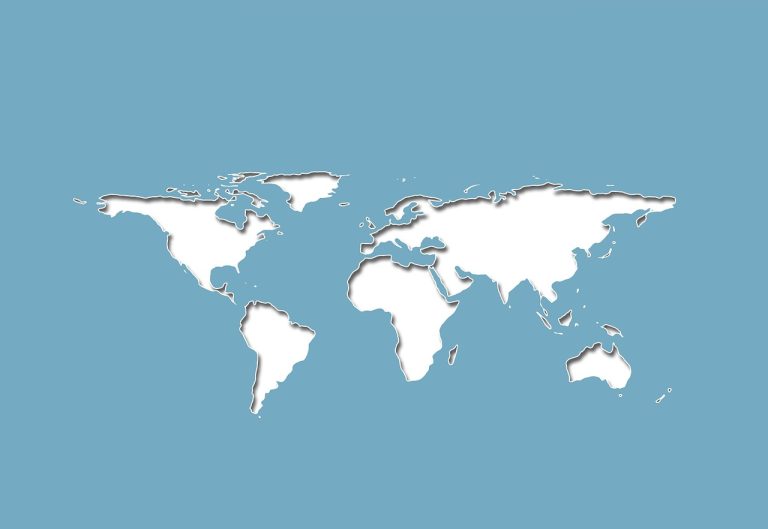
The Role of Digital Campaigns in the 2022 Philippine Elections: A Revolution or a Problem?
The 2022 Philippine elections marked a significant shift in the political landscape, primarily driven by the impact of digital campaigns. As the world becomes increasingly interconnected, the role of digital platforms in shaping political outcomes has grown exponentially. In the Philippines, a country with a vibrant political scene and a high internet penetration rate, the 2022 elections provided a unique case study on the influence of digital campaigns. This article delves into the multifaceted role of digital campaigns during this pivotal event, exploring whether they represented a revolution in political engagement or posed a problem for democratic processes.
The Rise of Digital Campaigns in Philippine Politics
Digital campaigns in the Philippines have become increasingly important due to the country’s high internet usage. As of 2022, the Philippines had over 76 million internet users, representing more than half of the population. This widespread access to digital platforms provided political candidates with unprecedented opportunities to engage with voters directly. Social media platforms like Facebook, Twitter, and Instagram became the battlegrounds for political discourse, with candidates utilizing these tools to communicate their messages, share their visions, and mobilize supporters.
The role of digital campaigns was particularly evident in the way candidates leveraged social media analytics to tailor their messages to specific demographics. Through data-driven strategies, they could identify key voter segments and target them with personalized content. This level of precision was previously unattainable with traditional campaigning methods, marking a revolutionary shift in how political campaigns are conducted.
Advantages of Digital Campaigns

Digital campaigns offered several advantages over traditional methods. Firstly, they provided a cost-effective means of reaching a large audience. Unlike television or radio advertisements, which require significant financial resources, social media and digital platforms allow candidates to reach millions of voters with relatively low expenditure. This democratization of campaign tools enabled even smaller parties and independent candidates to gain visibility.
Furthermore, digital campaigns facilitate real-time engagement with voters. Candidates can respond to queries, address concerns, and clarify their positions on various issues instantly. This immediate feedback loop creates a sense of transparency and accountability, fostering trust between candidates and the electorate. Additionally, digital platforms enable the rapid dissemination of information, allowing candidates to quickly counter misinformation and shape public perception.
Challenges and Controversies
Despite the advantages, digital campaigns also posed significant challenges and controversies during the 2022 Philippine elections. One of the primary issues was the spread of misinformation and fake news. The viral nature of social media content meant that false information could spread rapidly, influencing voter perceptions and decisions. This phenomenon was exacerbated by the presence of troll farms and organized campaigns designed to manipulate public opinion.
Another challenge was the digital divide. While internet access is widespread, there remains a significant portion of the population, particularly in rural areas, who are not connected or lack digital literacy. This disparity can lead to unequal access to information, potentially skewing electoral outcomes. Candidates who focus heavily on digital campaigns may inadvertently neglect these communities, resulting in their disenfranchisement.

Moreover, the anonymity afforded by digital platforms has led to issues of accountability. The use of fake accounts and bots to amplify certain narratives raises ethical concerns about the integrity of digital campaigns. These practices can distort public discourse and undermine the democratic process, leading to calls for stricter regulation and oversight.
Case Studies: Successes and Failures
Several candidates in the 2022 Philippine elections successfully harnessed the power of digital campaigns to achieve electoral victories. For instance, one presidential candidate’s team effectively utilized a mix of social media influencers and strategic content to engage with younger voters, who are among the most active online demographics. This approach not only increased the candidate’s visibility but also energized a critical voting bloc.
Conversely, there were also notable failures where digital campaigns backfired. In some cases, negative campaigning and smear tactics led to public backlash, damaging candidates’ reputations. The rapid dissemination of negative content can quickly spiral out of control, illustrating the double-edged nature of digital platforms.
Regulatory and Ethical Considerations
The role of digital campaigns in the 2022 elections has sparked debates about the need for regulatory frameworks to govern online political advertising. Current regulations lag behind technological advancements, leaving room for exploitation and abuse. There is a growing consensus on the need for policies that ensure transparency in digital campaigning, such as the disclosure of funding sources and the identification of paid political advertisements.
Ethical considerations also play a crucial role in shaping the future of digital campaigns. As political discourse increasingly moves online, there is a responsibility to maintain civility and respect for differing opinions. The anonymity of the internet should not serve as a shield for unethical behavior or the spread of harmful content.

The Future of Digital Campaigns in Philippine Politics
Looking ahead, digital campaigns are likely to remain a staple of Philippine elections. The ongoing evolution of digital technologies will continue to offer new tools and strategies for engaging with voters. However, the lessons learned from the 2022 elections underscore the importance of balancing innovation with ethical considerations and regulatory oversight.
For digital campaigns to truly serve as a revolutionary force in enhancing democratic participation, there must be a concerted effort to address the challenges they pose. This includes bridging the digital divide, combating misinformation, and ensuring accountability in online political activities.
Takeaways
The role of digital campaigns in the 2022 Philippine elections represents both a revolution and a problem. On one hand, they have transformed the way political messages are disseminated, offering unprecedented opportunities for engagement and participation. On the other hand, they have introduced new challenges that threaten the integrity of democratic processes.
As the Philippines continues to navigate the digital age, it is imperative for stakeholders, including policymakers, platforms, and the public, to collaborate in creating a digital ecosystem that upholds the principles of democracy. By embracing the potential of digital campaigns while addressing their pitfalls, the Philippines can set a precedent for other nations grappling with similar challenges.
Engaging Younger Generations
One of the most notable impacts of digital campaigns in the 2022 Philippine elections was their ability to engage younger generations. The youth, who comprise a significant portion of the voting population, are inherently more attuned to digital platforms. This demographic shift necessitated a change in how political messages were crafted and delivered. Candidates who successfully engaged with young voters did so by adopting a more relatable and interactive approach, utilizing memes, short videos, and live-streamed events to capture attention.

Moreover, the use of interactive content such as polls, Q&A sessions, and virtual town halls allowed for a more participatory political environment. This shift towards a more engaging and inclusive political dialogue helped demystify the electoral process for younger voters, encouraging greater participation and interest in politics. According to a study by the Pew Research Center, younger voters globally are more likely to engage with politics if they feel their voices are heard and their concerns addressed, a trend mirrored in the Philippines.
The Role of Influencers and Content Creators
In the 2022 elections, influencers and content creators played a pivotal role in shaping public opinion. These individuals, who command large followings, became essential conduits for political messaging. Candidates collaborated with influencers to broaden their reach and lend credibility to their campaigns. This strategy was particularly effective in reaching niche audiences that traditional media might overlook.
However, the involvement of influencers in political campaigns also raised questions about authenticity and potential conflicts of interest. As influencers are often perceived as trusted figures by their followers, their endorsement of political candidates carries significant weight. It is crucial for both influencers and political parties to maintain transparency regarding such collaborations to preserve trust and integrity in the digital space.
Lessons Learned and the Path Forward
The experiences of the 2022 Philippine elections offer valuable lessons for future digital campaigns. Firstly, the importance of authenticity and transparency cannot be overstated. Voters are increasingly savvy and can discern between genuine engagement and superficial outreach. Candidates who prioritize authentic communication are more likely to build lasting connections with the electorate.

Secondly, the fight against misinformation must be a collective effort involving all stakeholders. Social media platforms, government bodies, and civil society organizations must collaborate to develop strategies that curb the spread of false information. This includes investing in digital literacy programs to equip citizens with the skills needed to critically assess the information they encounter online.
Lastly, the digital campaign landscape must evolve to become more inclusive. As digital tools become more sophisticated, it is imperative to ensure that all segments of the population, regardless of age, location, or socioeconomic status, have equal access to information and opportunities to participate in the democratic process.
Conclusion: A Dual-Edged Sword
Digital campaigns in the 2022 Philippine elections demonstrated the dual-edged nature of technology in politics. While they have revolutionized the way political campaigns are conducted, offering unprecedented opportunities for engagement and innovation, they have also introduced challenges that require careful consideration and management.
As the Philippines continues to embrace digital platforms for political discourse, it is essential to strike a balance between leveraging the benefits of digital campaigns and mitigating their potential downsides. By fostering a culture of transparency, inclusivity, and responsibility, the nation can harness the power of digital campaigns to strengthen its democracy and empower its citizens.
In conclusion, the digital campaign phenomenon is not merely a fleeting trend but a significant chapter in the evolution of Philippine politics. As both a revolution and a problem, it challenges us to rethink traditional paradigms and adapt to the dynamic digital age. The future of political engagement lies in the ability to innovate responsibly, ensuring that technology serves as a tool for empowerment rather than division.




